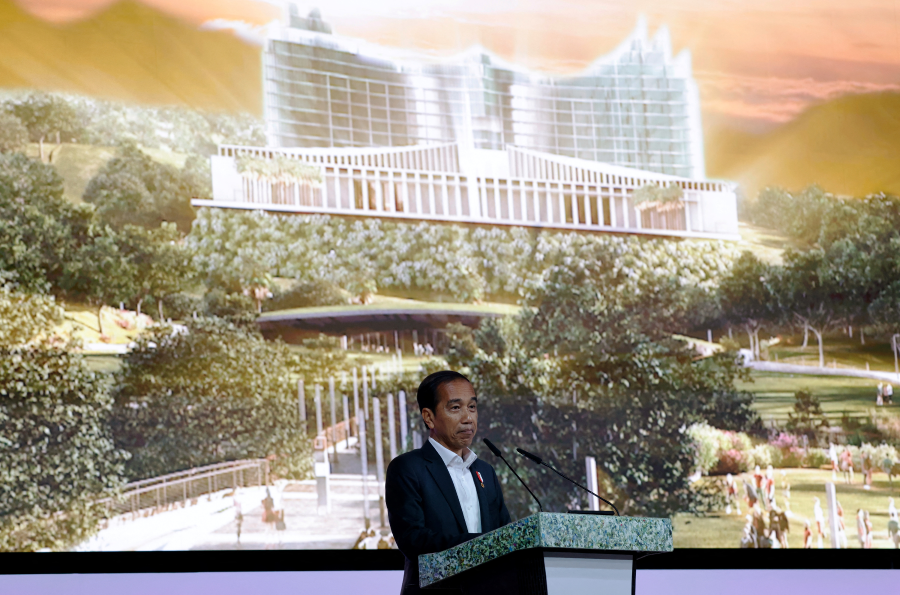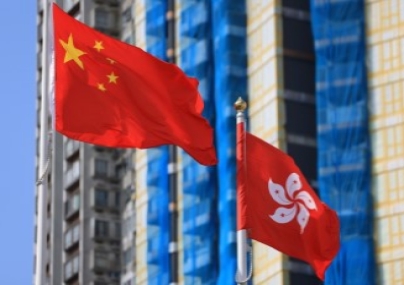
In April 2017, the Indonesian government led by Joko Widodo (better known as Jokowi) announced its plan to move the country's capital from Jakarta to a new city called Nusantara. With the inauguration set to happen in August next year, the government has laid out a plethora of incentives to attract investment to the new capital. There is, however, uncertainty over the country’s political and regulatory landscape, which keeps law firms in Indonesia busy.
Indonesia's seismic decision to relocate its capital from Jakarta to Nusantara Capital City (Ibu Kota Nusantara, or IKN) has sparked global attention, heralding a monumental shift in the country's infrastructure and economic landscape.
The plan is nothing if not ambitious. Located in the province of East Kalimantan and with an estimated budget of around $35 billion, IKN is expected to encompass an area of 2,560 sq. km., surrounded by hilly landscapes, a forest, and a natural bay. The Indonesian government aims to relocate up to 1.9 million people to IKN by 2045, with some civil servants moving as early as 2024.
But even as Indonesian President Jokowi broke ground on Nov. 1 for construction of several projects ranging from an airport, a toll road and a hospital to a hotel in IKN, the plan is almost wholly reliant on private investment, with the state committing to fund only 20 percent of the project.
And here lies the problem. While Indonesia forges ahead with its ambitious capital relocation with an aim to launch the city next year, the balance between promising prospects and regulatory and financial certainty remains a pivotal concern in the eyes of global investors.
This uncertainty among potential investors has sparked a slurry of work for law firms, who are keeping track of the latest government regulations and incentives, the process and documents required to make such investments, tax concessions, business licensing requirements and, importantly, land ownership regulations and incentives in IKN.
"Law firms can leverage government efforts in relation to IKN by assisting clients in identifying the projects which are available to investors as well as in the pipelines, advising about the benefits to investors of investing in IKN, identifying causes of delays in getting the benefits or in starting a project, as well in navigating the regulatory requirements or processes for doing business in IKN," says Nadia Soraya, a partner at Baker McKenzie's Indonesia member firm Hadiputranto, Hadinoto & Partners (HHP).
NO SENSE OF SECURITY
Experts say that the government has offered strong incentives to potential investors, but fails to provide a sense of security, especially surrounding implementation.
"We believe that the incentives granted for investors in IKN will be a big selling point for investors. While the current regulations are lacking a sense of security for investors, especially regarding their implementation, there is still hope that implementing regulations would give more clearance for us to navigate the regulatory aspect of investment and project development in IKN," Soraya says.
As of Nov. 2, not a single foreign investor had finalised an investment agreement in the new capital. Jokowi has attributed this to sense of purposeful restraint on behalf of foreign investors, in order to give domestic players the first chance to invest.
During the groundbreaking ceremony of Pakuwon Nusantara (a superblock) in the IKN area in East Kalimantan Province on Nov. 1, the President detailed that at least 130 investors from Singapore had come to see IKN in person several months ago, while investors from South Korea, Japan, Malaysia and the United Arab Emirates had also visited.
According to data provided by the Nusantara Capital City Authority and compiled by PwC, there have been 182 letters of intent from investors expressing their interest in the project since October 2022, around 50 percent of whom are foreigners.
The government has put in place measures to attract foreign investors to the new city, including Government Regulation 12 of 2023, which offers incentives such as corporate income tax exemptions, tax holidays, and personal income tax exemptions for investments in priority projects such as ports, airports, renewable energy systems, and healthcare services, among many others.
Bambang Susantono, chair of the Nusantara authority, has also said in an investor meet that funding the project will be profitable, citing an 11 percent to 13 percent potential return on investing in the city's power system.
One of the most attractive sets of measures is the tax exemptions. The government will provide up to 100 percent corporate income tax exemption of between 10 and 30 years for domestic taxpayers that invest at least 10 billion rupiah ($651,000) in the new capital. The duration of the incentive depends on the sectors in which the investment is directed.
Businesses operating in the new capital city will be allowed to employ foreign workers for a period of 10 years, which can be further extended.
The government is offering investors 95-year land use permits, extendable for another 95 years and thus totalling 190 years for land use.
Soraya explains that while the regulation incentivises private domestic and foreign investments in the region, it still remains general in nature and may not sufficiently address investor concerns in the region.
"While the government of Indonesia has issued a set of rules and regulations to attract investment in Nusantara Capital City, including giving incentives and facilities for investing as well as ensuring the ease of doing business in IKN, these regulations are still pretty much general in nature. More detailed regulations are needed to implement the general regulations currently in existence." Soraya says.
"It remains to be seen when these detailed regulations will be issued, or if they are issued, whether in practice they would be sufficient for the immediate implementation of the existing general rules," she adds.
Soraya explains this with an example. "Under the Regulation which grants investment incentives and facilities in IKN, no land registration duty (BPHTB) will be payable for granting of the title over land areas allocated to investors in IKN. Also, transfers of allocated land areas from the original investors to a third party will also be free from BPHTB. However, the regulation limits the 0 percent BPHTB to a certain period of time, which is to be determined under a regulation of OIKN. That regulation has not been issued."
"These issues will depend more on how the government progresses with the regulatory framework in relation to IKN, while our law firm is focusing more on what will benefit investors from the current regulatory framework and raising awareness about aspects of IKN-related regulations that may impact the investors," Soraya says.
POLITICAL CALCULATIONS
Potential investors eyeing IKN projects also express apprehension due to the upcoming elections and the consequent uncertainty surrounding the continuity of current investment policies. The looming question of whether the new administration will uphold similar policies or veer towards alternate strategies creates a sense of unease, leading many to adopt a wait-and-watch approach.
"As the current government has kickstarted the process for attracting investment in IKN, we also hope to see the continuity within the next government (as Indonesia is holding a Presidential election in February 2024). Changes in law after the change of the administration is always a big concern for investors," Soraya says.
Jokowi has assured foreign investors at a meeting in Singapore that continuity should not be a concern. "Everything will be fine, no need to worry, your investment in Indonesia will continue to be safe and (there will be) continuity in the development of Nusantara capital city," he said while presenting images of a futuristic city.
To address such concerns, Soraya says HHP keeps its foreign clients well-informed and updated on changing policies. "Our law firm keeps track of every newly issued regulation. For regulations that may impact investors, we usually publish regulatory alerts or similar publications to raise clients' or prospective investors' awareness. It is also our usual practice to invite clients to discuss new important issues or matters to look out for, which can be in a one-on-one setting or a seminar format."
LAWYERS NEEDED
While the regulation seeks to streamline and facilitate foreign investments, there are critical areas where foreign businesses frequently seek legal counsel, experts say.
Bintang Hidayanto, a partner at Indonesian law firm Guido Hidayanto & Partners (GHP), says that the firm frequently advises foreign clients on investment thresholds, ownership structures, land acquisition rights, environmental and sustainability compliance, taxation, labour law and dispute resolution in relation to investment in IKN.
"The Indonesian government's concerted efforts to promote foreign investments in IKN present a plethora of opportunities. Law firms, with their legal acumen and in-depth knowledge of the regulatory landscape, are instrumental in ensuring that clients can leverage these initiatives effectively while remaining compliant."
- Bintang Hidayanto, Guido Hidayanto & Partners
"The Indonesian government's concerted efforts to promote foreign investments in IKN present a plethora of opportunities. Law firms, with their legal acumen and in-depth knowledge of the regulatory landscape, are instrumental in ensuring that clients can leverage these initiatives effectively while remaining compliant," Hidayanto says.
"One of the primary areas of interest for foreign investors is understanding the specific monetary thresholds and criteria that determine their eligibility to invest in Ibu Kota Nusantara. The regulation provides certain guidelines, but ensuring compliance necessitates a deep dive into the specifics," he adds.
"In the context of Ibu Kota Nusantara's ecological significance, understanding the environmental regulations, sustainability commitments, and associated compliances is paramount for investors, especially those in the infrastructure and construction domains," Hidayanto notes.
He emphasizes that to navigate the intricacies of the regulation, a comprehensive understanding of its provisions, coupled with sector-specific insights, is indispensable.
"Law firms and legal advisors play a pivotal role in demystifying these complexities, ensuring that foreign businesses can make informed decisions and remain compliant while optimizing their investment strategies in Ibu Kota Nusantara," Hidayanto explains.
To mitigate these concerns, a multifaceted approach is essential, explains Hidayanto.
"Comprehensive due diligence, particularly in the realm of land acquisition, is of utmost importance. Continuous engagement with governmental agencies will facilitate clarity on evolving regulations. Furthermore, the crafting of contracts with built-in safeguards against potential regulatory shifts will be pivotal. Lastly, staying abreast of legal and regulatory updates will ensure that investors are well-informed and can adapt to changes proactively."
Law firms first help foreign investors navigate different incentive packages, ensuring clients understand what is most beneficially aligned with their interests. Once selected, the next step is mapping compliance, obtaining relevant licenses and undertaking land acquisitions in IKN, particularly in various special economic zones.
"Given the long-term nature of investments, law firms can craft contracts that offer clients protection against unforeseen regulatory shifts or potential disputes," Hidayanto adds.
Lastly, investors will also have to comply with environmental and sustainable development objectives set out by the government, which get more complicated in the IKN region, which is surrounded by Borneo's jungles rich in biodiversity. "Law firms can assist clients in understanding and adhering to environmental regulations, ensuring their operations are sustainable," Hidayanto says.
NEED FOR CLARITY
While the regulation does lay out incentives, a lot of key schemes under it are yet to be implemented.
"GR 12/2023 is one of the measures and initiatives to attract investors in IKN by affording ease of business and providing incentives. To our knowledge, most (if not all) incentives and facilities have not yet been fully implemented in practice," Soraya says.
"We are seeing growing interest from investors, including foreign investors, in investing in and developing projects in IKN. However, most investors are currently at the wait-and-see stage. Some would like to see whether whoever is the front runner of the presidential election pledges to continue the program of the incumbent administration with regard to IKN. Others seem to be waiting until the next President is elected to see whether there will be any changes to the plan for IKN."
- Nadia Soraya, Hadiputranto, Hadinoto & Partners
"We are seeing growing interest from investors, including foreign investors, in investing in and developing projects in IKN. However, most investors are currently at the wait-and-see stage. Some would like to see whether whoever is the front runner of the presidential election pledges to continue the program of the incumbent administration with regard to IKN. Others seem to be waiting until the next President is elected to see whether there will be any changes to the plan for IKN," Soraya explains.
Hidayanto at GHP believes that despite the hesitancy, investors will eventually pour in, creating a diverse legal market in the new capital. Certain trends will shape the legal market in IKN more than others, he explains.
First, with the government policies still in regulatory flux, periodic amendments and changes in law are anticipated, "necessitating constant vigilance and adaptability". Second, a spike in FDI will see increased client demand for corporate M&A and transactional work, intellectual property, land acquisition, and real estate compliance and contractual negotiations. Third, IKN could fuel the growth of environmental law practice in the country, with strict sustainability measures being put in place for IKN projects. Fourth, increased investment will also bring increased dispute resolution demand – increasing the need for lawyers and infrastructure to handle arbitration, mediation and litigation in the region.
Hidayanto says that GHP also anticipates more collaboration with foreign law firms, given the increasingly cross-border nature of deals anticipated in IKN. "Recognizing the multifaceted nature of the project, we're fostering collaborations with international legal entities, amalgamating global best practices with local insights."
GHP is also looking at various AI-driven legal tech tools to leverage technology focused on streamlining legal services in the new capital, Hidayanto says. The firm is also in the process of setting up specialised task forces comprising experts in each different facet of IKN investment.
Hidayanto also explains the importance of community engagement for lawyers. "Engaging with the local communities, understanding their concerns and aspirations, will enable us to offer more holistic and grounded legal advice," he says.
|
NUSANTARA TIMELINE |
|
Phase I (2022-24) Phase II (2025-2029) Phase III (2030-2034) Phase IV (2035-2039) and Phase V (2040-2045) Danis Sumadilaga, head of the IKN Nusantara Infrastructure Development Implementation Task Force |


